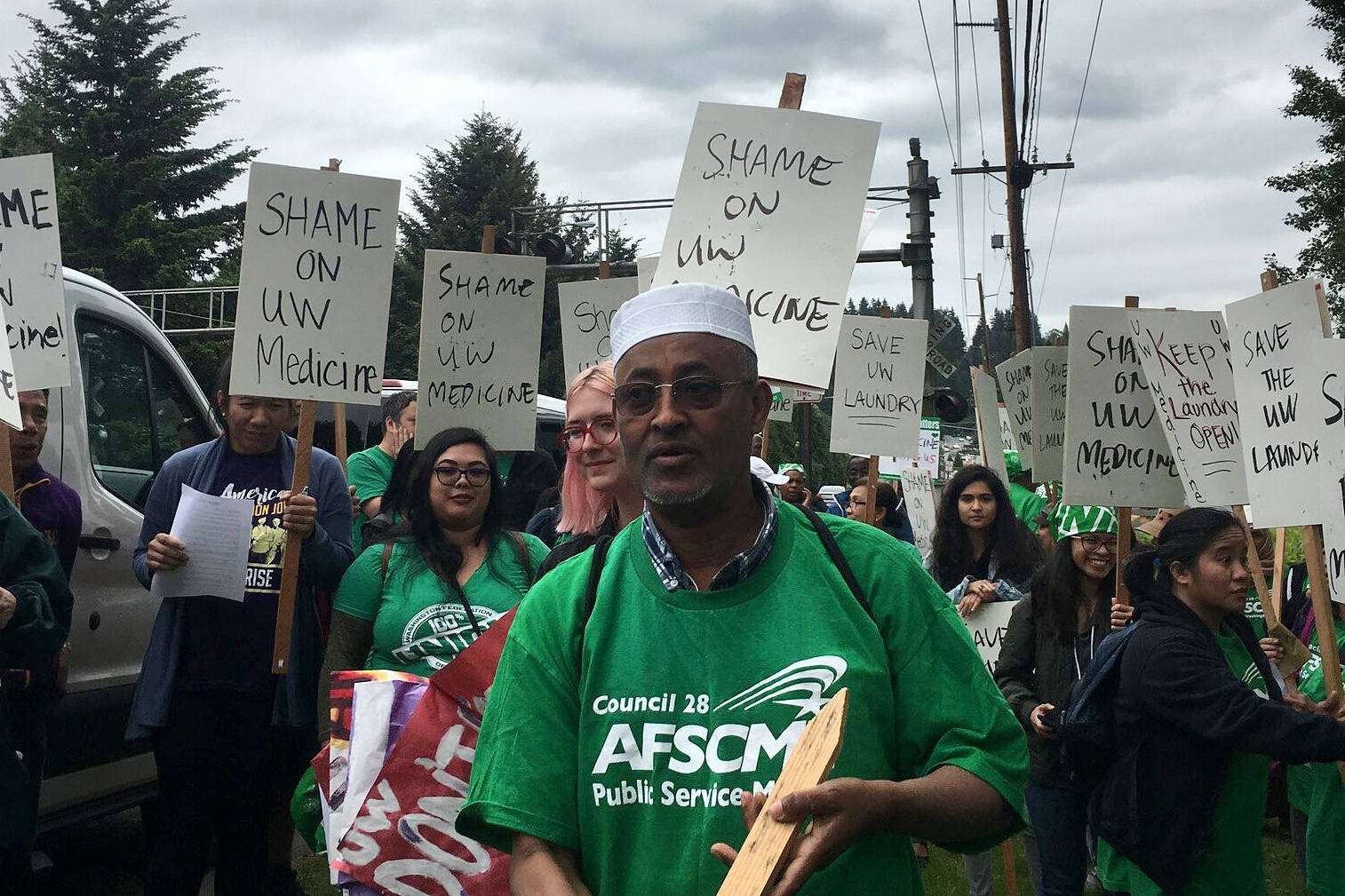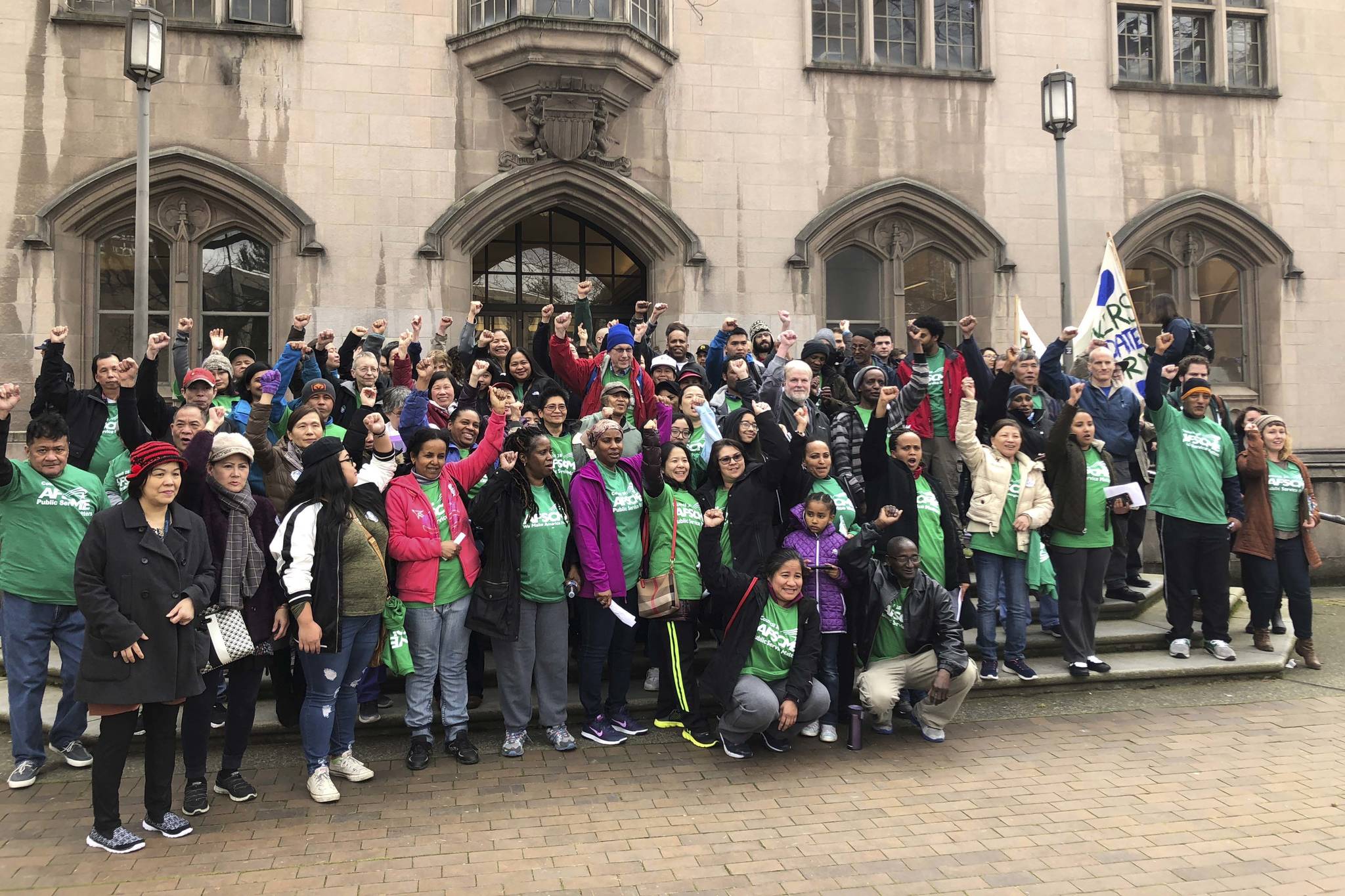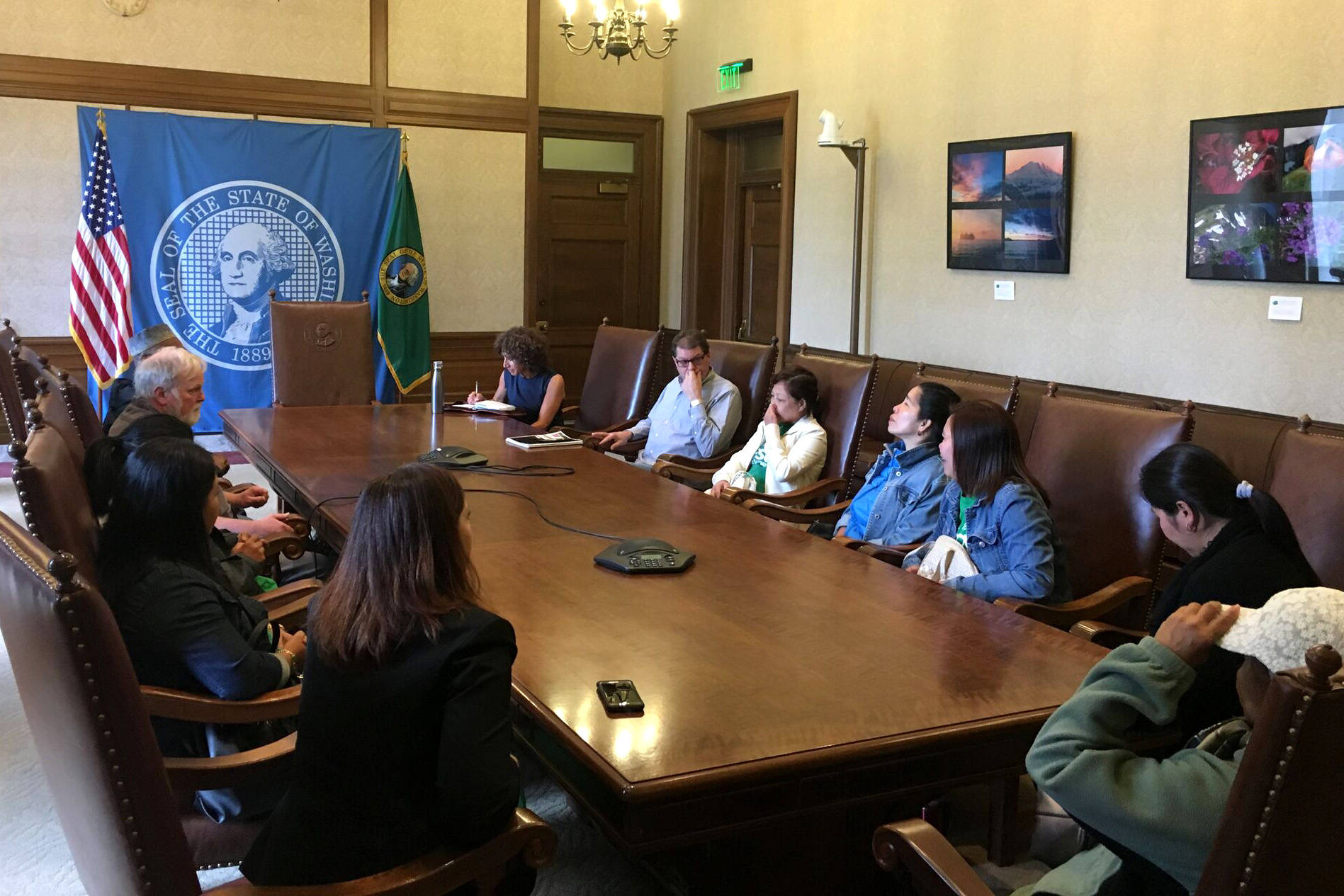Mustafa Getahun has worked as a truck driver at the University of Washington’s Rainier Valley laundry facility since shortly after arriving to the U.S. as a refugee from Ethiopia in the 1980s. For more than 20 years he’s done the largely invisible job of picking up soiled linens from University of Washington facilities, dropping off the laundry to be cleaned at the Rainier Valley center, then delivering the fresh sheets and uniforms to the university’s patients and employees. It’s helped him raise three kids, and put two of them through college—one of whom received her Ph.D. from the University of Washington.
The university system has served as his family’s second home. But in March, he and more than 100 other laundry workers will lose their life’s work without receiving a payout when the facility closes. Citing the facility as a financial burden, University of Washington Medicine will instead outsource its laundry services to Auburn-based Hospital Central Services Association.
It’s come as a shock to Getahun, 58, who said he is frustrated to have to brush off his resume to find another job at his age. “We work hard and without our fault we lose our jobs,” Getahun said. “It’s a really sad story.”
The University of Washington’s Nov. 2 announcement that it would close Consolidated Laundry was met with little public outrage. But to the laundry workers unionized under the Washington Federation of State Employees, 89 percent of whom are immigrants, the news came as a major blow to their yearlong efforts to keep the facility open. The laundry workers held protests throughout the spring, testified at a Feb. 26 King County Council meeting, and met with Gov. Jay Inslee’s staff in Olympia to discuss keeping the facility open.
More than 40 members of the Washington State Legislature even sent a letter to UW President Ana Mari Cauce and UW Medicine CEO Paul Ramsey, imploring the university not to make a decision on the facility’s fate before lawmakers had an opportunity to find solutions during the next legislative session. “We are convinced that the UW Consolidated Laundry is a vital public asset, both for the State of Washington, as well as UW Medicine,” legislators wrote in the Aug. 31 letter. “We are deeply concerned at the prospect of UW Medicine moving forward with the closure of its laundry without first working in good faith with the Legislature.”
The union also commissioned laundry-linen management consultant Tom Mara to provide an analysis on UW Medicine’s future laundry-linen services in a report that was released in late October. Mara looked at three scenarios: continuing to operate the UW Laundry at its current facility by making investments such as replacing equipment and upgrading the facility; developing new laundry services on the same land as Consolidated Laundry or elsewhere in Seattle; or closing UW Medicine’s laundry facility to outsource services. In the first scenario, Mara concluded that building renovation and equipment replacement would cost $5 million, while UW Medicine’s estimated that it would amount to $15.1 million. The report concluded that UW Medicine would save more money by investing in the laundry facilities instead of outsourcing.
UW Medicine spokesperson Tina Mankowski wrote in a statement emailed to Seattle Weekly that the university officials did take Mara’s and others’ suggestions into consideration when making their final decision. But ultimately they found the facility to be too much of a drain on the university system, she said. “The motivation for this decision was financial. UW Medicine, which provides a large portion of the state’s under- and un-compensated care, is currently experiencing significant financial challenges. Contracting with HCSA saves an estimated $3 million in operating expenses annually and avoids significant capital investments currently necessary to keep our existing facility operational. These savings will help UW Medicine continue to provide high-quality health care services to all regardless of ability to pay,” Mankowski wrote. “Our laundry workers are extremely loyal and hardworking and this decision is in no way a reflection of the incredible work they do every day to support our hospitals and patients. Our number-one priority over the next several months is their dignity and well-being, including helping them find new positions either at the UW, in our hospitals, with HCSA or elsewhere in the community. We will commit significant resources to this effort and are confident that any interested worker will have an opportunity either to continue to work at the UW or with HCSA.” She said the university is not able to share the HCSA contract details, as they are still negotiating.
Rod Palmquist, higher education coordinator for the Washington Federation of State Employees, takes issue with the way that UW Medicine has treated the laundry workers. “President Cauce focuses a lot on issues of equity, but her actions in closing the laundry are disproportionately destroying the lowest-paid UW Medicine workers, who are mostly workers of color and immigrants,” Palmquist said. “Instead of engaging with us on ways to keep the laundry open, which would benefit the university, she took this action that is devastating to the most marginalized workers at UW.”
In Palmquist’s eyes, news of the facility’s closure touches on a broader tension between the Washington Federation of State Employees and the university. WFSE, which represents 3,300 mostly lower-wage UW employees, is the only classified staff union that rejected the university’s last and final offer. “We’re in a wider dispute with the university, and we’re preparing for possible strike activities,” Palmquist said.
Getahun believes that much of the university’s financial woes could have been solved had the laundry facility been properly maintained throughout the years. In the meantime, Getahun and others are left to find other jobs within the next few months. He hopes that he can be a driver elsewhere, but the university has not offered him any other work opportunities aside from being a janitor, which he says is too physically demanding for him. “I don’t know what I’m going to do,” he said. “That’s scary.”
mhellmann@seattleweekly.com










